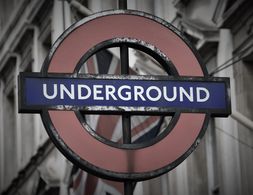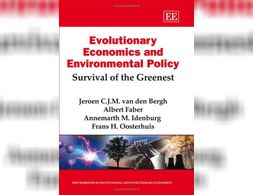✕
446 results
Ob Klima-Migration ein Sicherheitsrisiko oder eine Chance darstellt, liegt in den Händen der Politik
Der Klimawandel dürfte die globalen Migrationsbewegungen in den kommenden Jahren deutlich verstärken – was die Politik gleich an mehreren Fronten unter Handlungsdruck setzt.
The world is coping with a global disaster, as the new Coronavirus takes a toll on many lost lives and a severe impact on economic activity. To provide a long-run perspective, this column documents the international response to a variety of disasters since 1790. Based on a new comprehensive database on loans extended by governments and central banks, official (sovereign-to-sovereign) international lending is much larger than generally known. Official lending spikes in times of global turmoil, such as wars, financial crises or natural disasters. Indeed, in these periods, official capital flows have repeatedly surpassed total private capital flows in the past two centuries. Wars, in particular, were accompanied by large surges in the volume of official cross-border lending.
In the late nineteenth and early twentieth centuries, Bombay was beset by crises such as famine and plague. Yet, rather than halting the flow of capital, these crises served to secure it. In colonial Bombay, capitalists and governors, Indian and British alike, used moments of crisis to justify interventions that delimited the city as a distinct object and progressively excluded laborers and migrants from it.
It is fiercely debated when exactly the growth set off and what the drivers of Indian growth were. Scott Alexander summarises some of the recent literature on this question, demonstrating that not only the liberalisation policies of the 90s might be the driver of the take-off, but potentially public investments, political developments or cultural shifts.
Trade disputes are usually understood as conflicts between countries with competing national interests, but as Matthew C. Klein and Michael Pettis show in this book, they are often the unexpected result of domestic political choices to serve the interests of the rich at the expense of workers and ordinary retirees.
The Learning Economy and the Economics of Hope' brings together the most important contributions by an expert on policies, management and economics of innovation and knowledge. It offers original insights in processes of innovation and learning and it draws implications for economic theory and public policy. It introduces the reader to important concepts such as innovation systems and the learning economy.
Economics After the Crisis is an introductory economics textbook, covering key topics in micro and macro economics. However, this book differs from other introductory economics textbooks in the perspective it takes, and it incorporates issues that are presently underserved by existing textbooks on the market. This book offers an introduction to economics that takes into account criticisms of the orthodox approach, and which acknowledges the role that this largely Western approach has played in the current global financial and economic crisis.
Finance at the Threshold offers a unique perspective from an English economic and monetary historian. In it the author asks: Why did the banks stop lending to one another, and why now? Was it merely a matter of over-loose credit due to the relaxation of traditional prudence, or did global finance find itself at its limits?
This classic text offers a broader intellectual foundation than traditional principles textbooks. It introduces students to both traditional economic views and their progressive critique.
Gender Development and Globalization is the leading primer on global feminist economics and development. Gender is a development issue because social considerations are not easily incorporated into institutions such as policies, regulations, markets and organizations. This process is often referred to as the mainstreaming of gender in development institutions.
Economics for Emancipation (E4E) is a seven-module introductory curriculum with interactive and participatory workshops. It offers a deep critical dive into the current political economic system, exploration of alternative economic systems, and dynamic tools to dream and build the economy that centers care, relationship, and liberation.
John K. Galbraith tells the economic history of a couple of economies (mostly UK, US and to a lesser extent Germany) from the end of the first world war until the Bretton Woods conference. He also provides a biography of John M. Keynes and outlines some central ideas of Keynes such as the possibility of an underemployment equilibrium. Galbraith complements the historical remarks by the biographical experiences he made in economic management (and in engaging with Keynes) serving as deputy head of the Office for Price administration during the second world war.
What data is used in the economic models of the IPCC? How problematic is it, that tipping points are often ignored? A very interesting presentation by Steve Keen during the OECD Conference "Averting Systemic Collapse".
Can pluralism in economics be useful to tackle the fight against climate change? How can a diversity in methods and ideas allow for a better understanding of the issue of the climate crisis? What solutions do different schools of thought offer to overcome the most pressing challenge of the 21st Century? Our Rethinker Henrika Meyer will give you some answers and give you a glimpse of the solutions pluralism offers to tackle the fight against climate change.
Happy International Women s Day This International Women s Day 2018 is an opportune moment to highlight prominent scholars of Feminist Economics As a subdiscipline of economics Feminist Economics analyzes the interrelationship between gender and the economy often critiquing inequities and injustices perpetuated by mainstream paradigms Work of this nature …
Can pluralism in economics be useful to tackle the fight against climate change? How can diversity in methods and ideas allow for a better understanding of the issue of the climate crisis? What solutions do different schools of thought offer to overcome the most pressing challenge of the 21st Century?
Can pluralism in economics be useful to tackle the fight against climate change? How can diversity in methods and ideas allow for a better understanding of the issue of the climate crisis? What solutions do different schools of thought offer to overcome the most pressing challenge of the 21st Century? Our Rethinker Henrika Meyer will give you some answers and give you a glimpse of the solutions pluralism offers to tackle the fight against climate change.
"Bank Underground" is the staff blog of the Bank of England, founded to publish the views and insights of the people working for one of the world's oldest central banks. The blog covers a wide range of macroeconomic topics, mostly linked to the effects of monetary policy, of course, but not all the time. It provides timely, relevant analysis of contemporary challenges in economic policy and is thus often a perfect primer.
Since the 1980s, the financial sector and its role have increased significantly. This development is often referred to as financialization. Authors working in the heterodox tradition have raised the question whether the changing role of finance manifests a new era in the history of capitalism. The present article first provides some general discussion on the term financialization and presents some stylized facts which highlight the rise of finance. Then, it proceeds by briefly reviewing the main arguments in the Marxian framework that proposedly lead to crisis. Next, two schools of thought in the Marxian tradition are reviewed which consider financialization as the latest stage of capitalism. They highlight the contradictions imposed by financialization that disrupt the growth process and also stress the fragilities imposed by the new growth regime. The two approaches introduced here are the Social Structure of Accumulation Theory and Monthly Review School. The subsequent part proceeds with the Post-Keynesian theory, first introducing potential destabilizing factors before discussing financialization and the finance-led growth regime. The last section provides a comparative summary. While the basic narrative in all approaches considered here is quite similar, major differences stem from the relationship between neoliberalism and financialization and, moreover, from the question of whether financialization can be considered cause or effect.
The article compares market fundamentalism and right-wing populism on the basis of its core patterns of thinking and reasoning. Based on an analysis of important texts in both fields we find many similarities of these two concepts in their "inner images". Thus, we develop a scheme of the similar dual social worlds of right-wing-populism and market fundamentalism and offer some recent examples of market fundamentalism and right-wing populism mutually reinforcing each other or serving as a gateway for each other. We then apply our scheme for the analysis of the recent political developments and its ideological roots in the US under Donald Trump.
This brief note explores the possibility of working towards an enlarged self-definition of economics through economists’ study and appreciation of economic sociology. Common ground between economic sociology and heterodox economics is explored, and some of Richard Sennett’s ideas are used as prompts to raise some pertinent and hopefully interesting questions about economics. In particular, the note revisits the question of whether there is a possibility of changing our understanding of what kind of social scientific work falls within the domain of economics proper once we start critically engaging with work conventionally considered to be outside of that domain. In part, the note is intended to offer undergraduate students in economics – and possibly even those further down the road in their education – food for thought about what constitutes economics.
This collection of videos offers a short introduction to ecological economics and its main differences with respect to environmental economics.
Beyond Growth is a collection of educational materials offering a reflection on growth. It was created as a joint project of the associations Fairbindung e. V. and Konzeptwerk Neue Ökonomie, both based in Germany. The page provides learning materials and methods to stimulate thinking about the conditions of our current economy as well as possible alternatives.
For many social critics "globalization" is a signpost of “late-capitalism” with the rise of multinational corporations, mass consumption and the multidirectional flows of capital, labor, media, communication, ideologies and social movements across national borders. Feminist analyses of globalization and the gendered and sexualized permutations of these phenomena offer a critical stance for theorizing these processes, and for studying their complex articulations across time and space.
The goal of the class is to acquire familiarity with recently-published research in alternative macroeconomics with a focus on the distribution of income and wealth, cyclical growth models, and technical change.
Photo by Alina Grubnyak on Unsplash Networks are ubiquitous in our modern society The World Wide Web that links us to and enables information flows with the rest of the world is the most visible example It is however only one of many networks within which we are situated Our …
This course attempts to explain the role and the importance of the financial system in the global economy. Rather than separating off the financial world from the rest of the economy, financial equilibrium is studied as an extension of economic equilibrium. The course also gives a picture of the kind of thinking and analysis done by hedge funds.
A short course introducing co-operative firms, in the context of the Candian economy where various forms of co-operative make up a significant sector of the economy. The course offers foundational knowledge about co-operatives, explaining what they are and how they operate.
Economic theory must distinguish between publicly owned and privately owned property if it is to account for the effect of institutions on the behavior of individuals. Careful study of the theories of Marxists and the real-world experience in the Soviet economy offer important lessons and insight for economic modeling and the ongoing development of theory. In this course, Marxist/Leninist theory and Soviet reality will be studied with an open mind, and with the goal of taking lessons from the case study. To what extent was the Soviet economy an accurate expression of Marxist theory? If Marxism were tried somewhere else would the results be the same?
This study offers a unique evolutionary economics perspective on energy and innovation policies in the wider context of the transition to sustainable development. The authors include: - an analysis of the environmental policy implications of evolutionary economics - a critical examination of current Dutch environmental and innovation policies and policy documents - systematic evaluation of three specific energy technologies, namely fuel cells, nuclear fusion and photovoltaic cells, within the evolutionary-economic framework.
This is the first intermediate microeconomics textbook to offer both a theoretical and real-world grounding in the subject. Relying on simple algebraic equations, and developed over years of classroom testing, it covers factually oriented models in addition to the neoclassical paradigm, and goes beyond theoretical analysis to consider practical realities.
This Companion takes stock of the trajectory, achievements, shortcomings and prospects of Marxist political economy. It reflects the contributors' shared commitment to bringing the methods, theories and concepts of Marx himself to bear across a wide range of topics and perspectives, and it provides a testimony to the continuing purpose and vitality of Marxist political economy.
We use cookies on our website. Click on Accept to help us to make Exploring Economics constantly better!































